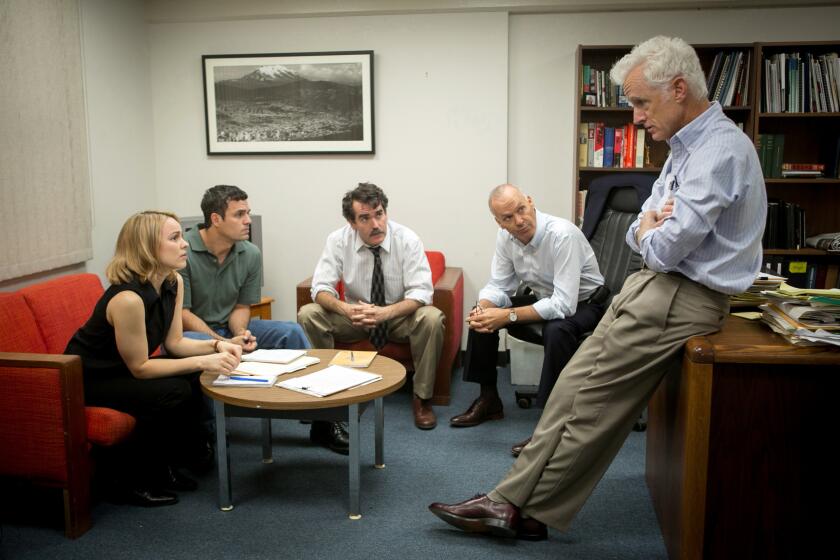Shares of Tenet Fall on Cuts in Ratings
The crisis at Tenet Healthcare Corp. deepened Friday as a number of analysts and a leading credit rating firm downgraded the Santa Barbara-based company, sending its already battered stock plunging and triggering investor concerns about the entire hospital sector.
Tenet shares fell 47% a day after the nation’s second-largest hospital operator overhauled senior management and revealed how its aggressive pricing strategy allowed it to collect an unusually large amount of special Medicare payments, which federal regulators are preparing to audit.
Hospital pricing has become a growing issue nationally, as the cost of health care has soared in recent years. Some analysts said the scrutiny of Tenet could spread to other companies and spur changes in government reimbursements to hospitals. Those concerns led to a sell-off of hospital stocks, including HCA Inc. and Triad Hospitals Inc.
“Tenet’s issues are resonating so deeply in the sector that they remind investors that acute-care hospitals are highly regulated and bound by Medicare rules,” said Darren Lehrich, an analyst at SunTrust Robinson Humphrey in New York.
Still, Lehrich said that with other hospital companies, “I don’t foresee any specific problems like those we’re seeing with Tenet.”
Hospital firms such as Tenet have enjoyed robust earnings growth and soaring stock prices in the last year. But Tenet’s stock has fallen 70% in the last two weeks, or about $16 billion in market value, amid questions about its hospital billing practices and a federal probe of two doctors at a facility in Redding. Tenet operates 113 general hospitals, including 40 in California.
On Friday, in Redding, three more people filed lawsuits against Tenet, Redding Medical Center and the two doctors, Chae Hyun Moon and Fidel Realyvasquez Jr. All three plaintiffs claimed fraud, and one blamed the death of a 74-year-old man, Cecil Josefsson, on an allegedly unnecessary coronary bypass surgery performed this year at Redding Medical. The suit was filed by the man’s son, Peter Josefsson, who, through his lawyer, declined to comment.
The FBI is investigating whether Moon, head of cardiology at Redding Medical, and Realyvasquez, the hospital’s chairman of cardiac surgery, performed hundreds of unnecessary heart procedures for which the two doctors billed Medicare millions of dollars.
Lawyers for Moon and Realyvasquez have said their clients have done nothing wrong. No charges have been filed against them. Tenet has not been named in the federal probe.
Also Friday, the California attorney general’s office filed papers in Shasta County requesting court approval to prevent Moon and Realyvasquez from practicing medicine pending the outcome of the investigation. A hearing is expected Tuesday.
Tenet’s legal problems were among the factors cited by Standard & Poor’s Corp. on Friday for lowering its debt rating to just a notch above “junk-bond” status. The rating cut is likely to make it more costly for Tenet to borrow money.
At least 10 other analysts Friday downgraded Tenet’s stock, which lost $13.05 to close at $14.90 on the New York Stock Exchange. More than 114 million shares changed hands.
Tenet officials, in a long conference call with investors after the close of markets Thursday, revealed that in the last fiscal year the company received $763 million in special Medicare reimbursements called “outlier payments.” These payments are made in addition to fixed Medicare payments for hospital services and are intended to help hospitals defray expenses for unusually costly procedures.
The company said it did not break Medicare rules, but analysts said Tenet unfairly took advantage of Medicare’s outlier payment formula to reap excessive reimbursements.
Tenet spokesman Harry Anderson said Friday that the company “absolutely did not” deliberately raise prices to maximize its special Medicare payments.
He said that Jeffrey Barbakow, Tenet’s chairman and chief executive, learned in the last two weeks that aggressive pricing was leading to big increases in outlier payments. Barbakow then confronted Chief Financial Officer David Dennis and Chief Operating Officer Thomas Mackey last week. He told them that he had lost confidence in them and requested they leave the firm, according to Anderson.







